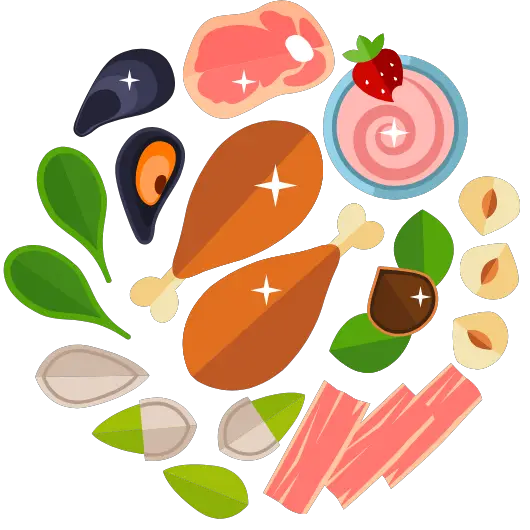Off the southern coast of the Korean peninsula lies Jeju Island, a place of breathtaking beauty and distinct character. Known as the “Island of the Gods,” its dramatic volcanic landscapes, windswept coastlines, and unique local dialect set it apart from the mainland. When you arrive, you might be greeted with the warm, local phrase, “Honjeo Opsoye”—”Welcome.” This is an invitation not just to the island itself, but to a culinary world shaped by the sea, the volcanic soil, and a history of remarkable resilience.
Jeju’s cuisine is a direct reflection of its environment. It is a testament to making the most of what the land and sea provide, favoring simplicity and freshness over complex sauces and heavy seasoning. To explore the food of Jeju is to taste the very essence of the island. We invite you on this journey to discover the ingredients and dishes that make Jeju’s food culture a truly unique and unforgettable experience.
1. The Foundation: A Philosophy of Freshness
The core principle of Jeju cuisine is to let the ingredients speak for themselves. Unlike mainland Korean food, which often features bold, fermented flavors from staples like gochujang and doenjang, Jeju cooking is characteristically lighter and more subtle. The goal is to highlight the natural, intrinsic taste of pristine ingredients freshly harvested from the island’s rich bounty.
- From the Sea: As an island, Jeju’s culinary identity is inextricably linked to the ocean. Its surrounding waters are home to an incredible variety of seafood, which forms the backbone of the local diet. Prized catches include abalone (jeonbok), sea urchin (seongge), tilefish (okdom), and the long, silvery cutlassfish (galchi). This daily harvest allows for dishes where the pure, clean taste of the sea is the star.
- From the Land: Jeju’s volcanic soil, while sometimes challenging for agriculture, imparts a unique quality to its produce. Hardy grains like buckwheat thrive here, and local cooks make excellent use of foraged vegetables and herbs. However, the most famous product of the land is undoubtedly the Jeju Black Pork (heuk-dwaeji), a heritage breed prized for its exceptional flavor and texture.
2. The Iconic Tastes of Jeju Island
Exploring Jeju’s food is a journey through its most beloved and iconic dishes, each telling a story about the island’s culture and environment.
a. Jeju Black Pork (흑돼지 – Heuk-dwaeji)
The undisputed star of Jeju’s land-based cuisine is the native Black Pork. This heritage breed is renowned for its rich, clean flavor and a distinctly chewy, succulent texture that sets it apart from conventional pork. The most popular way to enjoy it is grilled over charcoal (heuk-dwaeji gui). The thick cuts of meat are grilled to perfection and traditionally served with a unique dipping sauce called meljeot. This pungent, savory sauce, made from fermented anchovies, is heated on the grill and serves as the perfect, salty counterpoint to the rich pork, creating a flavor combination that is quintessentially Jeju.
b. Treasures from the Sea
- Abalone Porridge (전복죽 – Jeonbokjuk): Abalone is a prized delicacy, and this nutritious porridge is one of its most celebrated preparations. Made with freshly caught abalone, the dish is known for its subtly savory flavor and restorative properties. Authentic Jeju-style jeonbokjuk often has a distinctive greenish hue, a sign that the nutrient-rich abalone innards have been included, deepening the flavor and underscoring its freshness.
- Sea Urchin and Seaweed Soup (성게 미역국 – Seongge Miyeokguk): A classic island comfort food, this soup combines two of Jeju’s most representative ingredients. Fresh, creamy sea urchin roe is gently cooked in a clear seaweed broth. The result is a soup with a clean, deeply savory flavor of the sea, with the sea urchin adding a delicate, buttery sweetness.
- Grilled Tilefish (옥돔구이 – Okdom-gui): Tilefish is a local treasure, so valued that it was once served to kings. The fish is typically lightly salted and partially dried in Jeju’s clean, windy air before being grilled. This process concentrates its flavor and results in firm, flaky white flesh with a delicate, slightly sweet taste.
c. The Island’s Noodle Culture
- Pork Noodle Soup (고기국수 – Gogi-guksu): This is perhaps the most iconic noodle dish of Jeju. It features thick wheat noodles served in a rich, opaque, and incredibly savory broth made from simmering pork bones for hours. Topped with generous slices of tender boiled pork, it is a hearty, comforting, and deeply satisfying meal that stands in contrast to the clearer, lighter broths often found on the mainland.
- Buckwheat Noodles (메밀국수 – Memil-guksu): Buckwheat has long been a staple crop in Jeju’s volcanic soil. The island has its own tradition of buckwheat noodle dishes, often served in a simple broth or with a savory sauce, showcasing the nutty, earthy flavor of the grain.
3. The Spirit of the Haenyeo
One cannot speak of Jeju’s food without honoring the legendary haenyeo (해녀), the “women of the sea.” For centuries, these remarkable female divers have been harvesting seafood from the ocean floor without the aid of breathing equipment. Their incredible strength, resilience, and deep, sustainable connection to the sea are the living embodiment of the Jeju spirit. The fresh abalone, sea urchins, octopus, and conch they gather each day are the foundation of the island’s freshest and most authentic seafood dishes. To eat their catch is to taste a tradition passed down through generations.
In conclusion, the cuisine of Jeju Island is a pure and honest reflection of its environment. It is a celebration of natural flavors, a product of a unique history, and a testament to the resourcefulness of its people. To taste Jeju’s food—from its famous black pork to the fresh catch brought ashore by the haenyeo—is to connect with the very soul of the island. We encourage you to visit, to explore, and to savor the distinct and delicious welcome that awaits.
